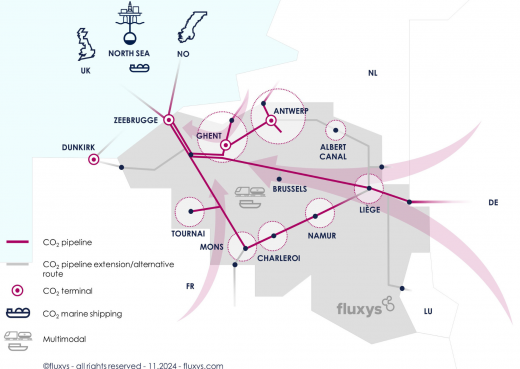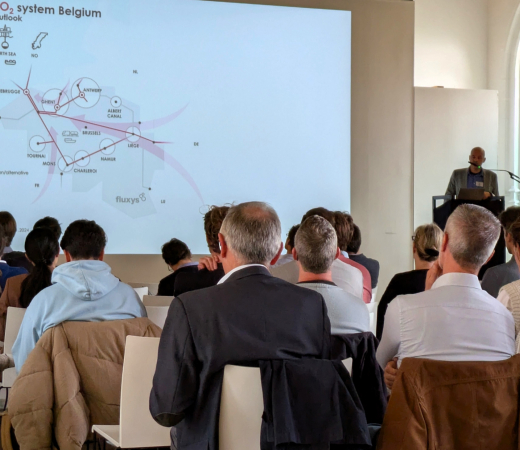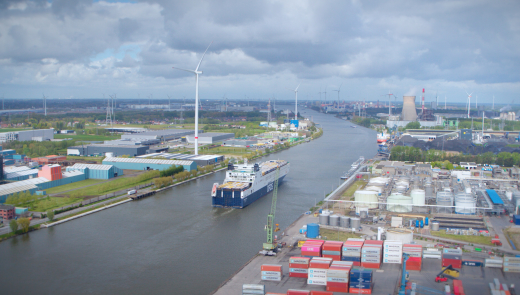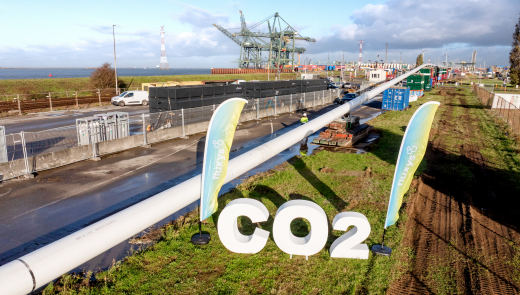
Important step towards CO₂ network: Fluxys helps build low-carbon future

The rollout of a large-scale CO₂ pipeline network in Belgium has officially begun. In the port area of Antwerp, work has started on the first phase of an infrastructure project crucial for the capture, transport and storage of CO₂ (CCUS). This initiative, carried by Fluxys c-grid Antwerp, with partners Fluxys Belgium, Pipelink and Air Liquide, represents a major milestone in the transition to a low-carbon industry.
Although this first phase takes place outside the North Sea Port region, the project underlines the wider perspective: the development of a flexible, cross-border CO₂ grid to connect Flanders and Belgium, with neighbouring countries. Such connections are essential to capture and transport CO₂ on a larger scale, an ambition that is also strongly felt in North Sea Port's industrial cluster.

Fluxys, a member of Smart Delta Resources Flanders, is playing a key role in this development. During the closing event of the Map-it CCU project, the company stressed that the demand for CO₂ transport infrastructure is growing rapidly, while the realisation of capture projects is often delayed. It is therefore important to invest now in strategic locations, where existing infrastructure can potentially be repurposed for CO₂ transport.
Fluxys c-grid recently applied to act as CNO (CO2 Network Operator) for both Flanders and Wallonia. In this role, the company would become responsible for the development, management and coordination of the CO₂ transmission network in both regions. Although the official award is still pending, it looks promising. Fluxys hopes to obtain formal recognition from the Flemish government by the end of Q3 2025 so that the Flemish route can be completed simultaneously with that of Wallonia. This step is part of Fluxys' broader ambition to be able to transport 30 million tonnes of CO₂ annually through a robust and cross-border grid by 2030. A timely decision on the further rollout of this grid could significantly accelerate the interconnection of industrial clusters. Consider connections to Fluxys' future c-grid Antwerp grid in the Antwerp port area, the North Sea Port industrial cluster and the wider SDR region, with further ramifications to the Netherlands, Germany, Norway and Wallonia.
Smart Delta Resources is closely following these developments and remains committed to creating the conditions for a future-proof CO₂ network in our region too.
LINKS:
- Fluxys CO₂, much more than a greenhouse gas
- Map-it CCU | CAPTURE

